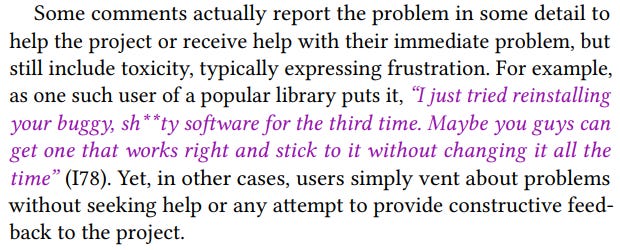You’re at a lecture peppered with jokes that are barely jokes. You keep cringing. If the speaker didn’t make any jokes, you wouldn’t cringe. We seem to prefer no humor over poorly executed humor. That’s kind of odd. Isn’t some humor better than none?
This is one of many situations where we’d predict value to go consistently up or consistently down. Instead, value briefly goes in the opposite direction! You wouldn’t have expected necessarily a straight line but at least that it would be monotonic.
Instead, this weird thing happens.
Let’s call this weird thing a bump.
There’s a bump related to vaccine incentives: people report being less likely to want to get vaccinated if they’re rewarded with money below a certain amount—rather than no money at all.
A difficult person should receive more disapproval the more difficult they are. Instead, I think you’d agree there's a sweet spot that "commands respect."
The better an athlete performs, the happier they should be. But silver medalists often look visibly more miserable than bronze medalists.
Sidenote: the Bump series isn’t trying to explain all bumps, just explore possible patterns by placing them next to each other.
~
Maybe bumps are partly about the mind being cued to expect something it doesn't get. The silver medalist is cued by their proximity to gold. I came so close. Attempts at humor cue you to expect a real laugh.
Bumps seem related to perceiving an opportunity to get something (or more of something) the brain wants.
Here are other examples.
Open-source software is usually given for free. You’d think software missing some features should be less distressing than no software at all! But users routinely make ranty, entitled demands when unhappy with software they received for free.

You’ve probably seen one-star reviews for things that were almost great. Awful things just get no review.
Someone who helps notice a problem in the world often gets all the blame for it.
A lot of these seem related to the millennia-old proverb “don’t look a gift horse in the mouth,” which warns against trying to milk a good thing; criticizing something to squeeze still more out of it; taking for granted that it happened at all. Someone starts to improve and only hears how far they have to go— or apologizes and is raked over the coals of their own honesty. A billionaire donates a large percent to charity and is criticized for not giving correctly or enough.
These are bumps. And they illustrate how the wish to influence people or outcomes can hijack expression about them. It can hijack even your experience itself, often without you realizing.
It’s probably starting to be clear why it’s valuable to notice bumps. This weird phenomenon deeply affects how we experience things and how we reward or punish each other—the incentives we offer.
Bumps aren't obvious to the conscious mind. They feel like just the way things are. This is how basically all subconscious strategies show up. We don’t realize what we’re feeling or expressing is actually strategic: born of a wish to change reality.
In the long run, bumps tend to cause fewer good things to happen.
It’s hard for our brains to not take good things for granted. It’s hard to resist cues to discontentment. But some things can make it a little easier.
More in Part II.





